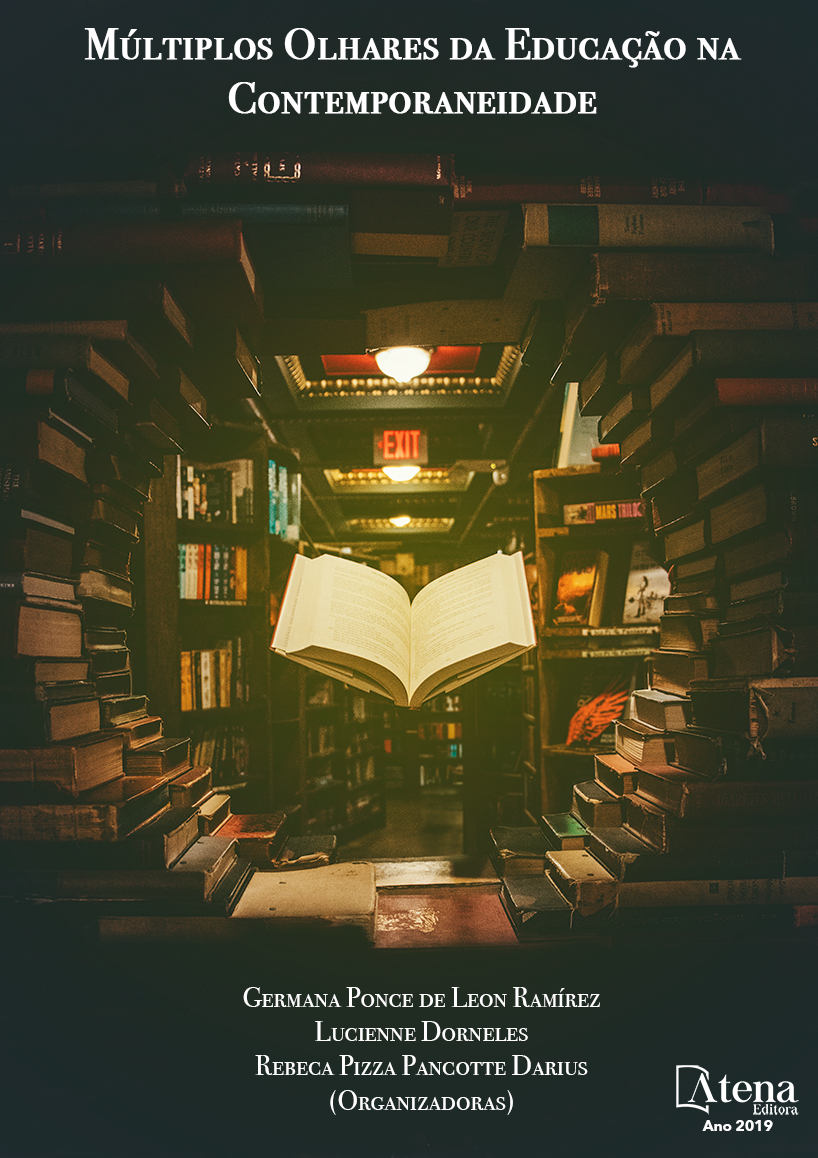
JOGOS LÚDICOS COMO FERRAMENTA DE DESENVOLVIMENTO DO RACIOCÍNIO LÓGICOMATEMÁTICO NAS SÉRIES FINAIS DO ENSINO FUNDAMENTAL I NA PERCEPÇÃO DOS DOCENTES
Este artigo discute o papel dos jogos
lúdicos e as dificuldades que o professor enfrenta
em sua ação no processo de desenvolvimento
do raciocínio lógico-matemático. Trata-se de
um estudo qualitativo de natureza exploratória
no qual pretendeu-se, investigar como o jogo
auxilia o processo de ensino-aprendizagem
dos conteúdos de matemática nas séries finais
do Ensino Fundamental e verificar a opinião
dos professores de duas escolas particulares
buscando identificar os obstáculos encontrados
no momento de colocar em prática as atividades
lúdicas. Concluiu-se que os professores
encontram dificuldades para utilizar os jogos
como ferramenta de ensino como: o tempo
gasto com a preparação das atividades, a
falta de recurso/materiais disponibilizados pela
escola, as estratégias trabalhadas no cotidiano
e também a competitividade existente entre
os docentes. Entretanto, consideram os jogos
como um recurso valioso no processo de
ensino-aprendizagem.
JOGOS LÚDICOS COMO FERRAMENTA DE DESENVOLVIMENTO DO RACIOCÍNIO LÓGICOMATEMÁTICO NAS SÉRIES FINAIS DO ENSINO FUNDAMENTAL I NA PERCEPÇÃO DOS DOCENTES
-
DOI: 10.22533/at.ed.5451918078
-
Palavras-chave: Raciocínio Lógicomatemático; Matemática; Jogos Lúdicos.
-
Keywords: Logical-mathematical Reasoning; Mathematics; Play Games.
-
Abstract:
This article discusses the role
of play games and the difficulties that the
teacher faces in his action in the process of
development of logical-mathematical reasoning.
It is a qualitative study of an exploratory nature
in which it was intended to investigate how the
game assists the teaching-learning process
of mathematics content in the final grades of
Elementary School and to verify the opinion
of the teachers of two private schools in order
to identify the obstacles encountered when
implementing play activities. It was concluded
that teachers find it difficult to use games as a
teaching tool such as: time spent preparing the
activities, lack of resources / materials provided
by the school, strategies worked on in the daily life and also the competitiveness among
teachers. However, consider games as a valuable resource in the teaching-learning
process.
-
Número de páginas: 15
- Evelyn Mendes Cerqueira
- Monize Aparecida de Toledo
- Rafaela da Silva Dantas
- Raquel Pierini Lopes dos Santos
- Luciane Weber Baia Hees
- Bruno


